Solve the problem, using the table. You buy a 3-year CD for $7500 that earns 5% interest compounded daily. After three years the compound amount will be used to buy a 4-year CD that earns 6% interest compounded daily. Find the final amount you will have after 7 years.
You buy a 3-year CD for $7500 that earns 5% interest compounded daily. After three years the compound amount will be used to buy a 4-year CD that earns 6% interest compounded daily. Find the final amount you will have after 7 years.
A. $16,213.67
B. $17,427.34
C. $11,077.03
D. $8713.67
Answer: C
You might also like to view...
Find the linearization L(x) of f(x) at x = a.f(x) =  , a = 0
, a = 0
A. L(x) = -  x
x
B. L(x) = -  x
x
C. L(x) =  x
x
D. L(x) =  x
x
Solve the absolute-value inequality. < 8
< 8
A.  , or
, or  ?
? 
B.  , or
, or 
C.  , or
, or 
D.  , or
, or 
Convert as indicated. If necessary, round to the nearest tenth of a degree.49°C to degrees Fahrenheit
A. 47.2°F B. 11.6°F C. 120.2°F D. 56.2°F
Solve the problem.Tickets to a ballet cost $14 if bought in advance. If bought at the door, they cost $24. For the ballet to make a profit, the total money collected from ticket sales must be at least $380. (a) Write an inequality to represent this situation, using x for the number of tickets bought in advance and y for the number of tickets bought at the door. (b) Graph the inequality. Because x and y must be whole numbers, restrict the graph to Quadrant I. (c) Can the ballet make a profit if it sells 30 tickets in advance and 10 tickets at the door?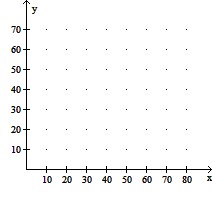
A. (a) 14x + 24y ? 380
(b)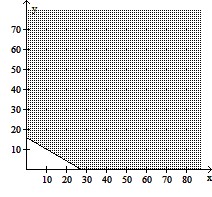
(c) yes
B. (a) 14x - 24y ? 380
(b)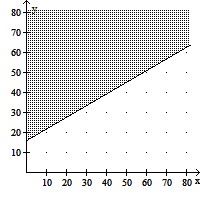
(c) no
C. (a) 14x + 24y ? 380
(b)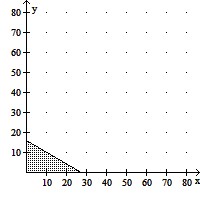
(c) no
D. (a) 14x - 24y ? 380
(b)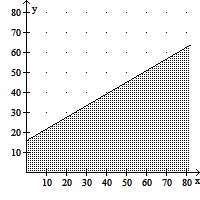
(c) yes